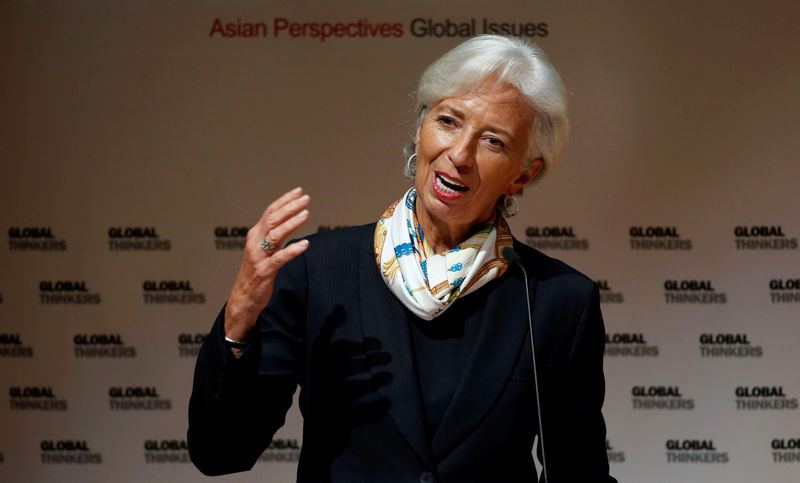By Geoffrey Smith
Investing.com -- The euro rose on Thursday after the European Central Bank chose not to revise down its longer-term forecasts for growth and inflation, while President Christine Lagarde said the eurozone economy is seeing a "strong rebound" after its collapse in the second quarter.
By the end of Lagarde's press conference at 9:30 AM ET (1330 GMT), the euro was at $1.1898, up 0.8% on the day.
Lagarde said in the introductory statement to her press conference that the rebound was proceeding in line with the bank's previous expectations. The bank now expects a slightly smaller drop in gross domestic product this year, of 'only' 8%.
Answering questions later, she added that there had been no discussion of any possible increase to the 1.35 trillion bond-buying scheme that is the cornerstone of its response to the pandemic. However, she said that she expected the full ‘envelope’ of 1.35 trillion euros to be used. The so-called Pandemic Emergency Purchase Program is set to run through June of next year.
While saying that short-term price pressures were largely negative, the bank left unchanged its forecast for inflation in 2022, at 1.3%, a choice that suggested it saw no immediate need to ease its monetary policy any further. Some analysts had speculated that the bank could revise down its longer-dated forecasts, preparing the ground for a possible extra round of stimulus in the future.
"Clearly, there is no deflationary risk" implied in the 2022 forecasts, Lagarde said in response to a subsequent question.
Separately, newswires reported unnamed sources as saying that Lagarde had agreed that there was 'no need to over-react' to the euro's rally, which has taken it to its highest in over two years against the dollar.
There was no clear expression of concern in Lagarde's statement about the euro's strength, although she acknowledged it as one of a handful of factors putting downward pressure on prices in the short term.
When pressed on the exchange rate later, Lagarde acknowledged somewhat more forcefully that: "Obviously the appreciation of our currency has an impact" on the medium-term outlook for inflation. "The external value of the euro is an important element of price setting in the euro area."
Analysts expressed concern at what appeared to some to be a distraction from the threat of too-low inflation.
"The major risk coming into this press conference was downplaying low inflation and getting hung up on the Euro," said Robin Brooks, an economist with the Institute for International Finance in Washington. "Unfortunately, it looks like that is playing out."
Others were more sanguine, however.
"I don’t see anything particularly hawkish today in revising up the GDP forecast," said Gilles Moec, group chief economist with AXA, via Twitter. "The ECB was significantly below consensus in June."
